Top 10 Cloud Service Providers In 2020
- The Tech Platform
- Sep 18, 2020
- 8 min read
Introduction
Whether it’s infrastructure, software, applications, services, products, or even an operating system, everything is making its way to the cloud. As a result, billions of dollars are being invested in cloud migration. In this detailed article, I’ll review the most popular cloud providers, their cloud offerings, and which cloud provider you should choose for your cloud services, from a developer perspective.
Cloud computing has multiplied over the past several years. As such businesses are increasingly transitioning to different cloud services. In this article, I’ll review some of the best, most popular cloud providers and their offerings, pricing, and features. I will also provide details on which cloud provider you should choose and why.
Cloud computing is Web-based computing which allows businesses and individuals to consume computing resources such as virtual machines, databases, processing, memory, services, storage, messaging, events, and pay-as-you-go. Cloud services often improve upon older ones. For example, the pay-as-you-go model charges for resources as they are used. Unlike traditional computing, if you do not use any resources, you do not need to pay. Similar to a water connection or an electricity line, you have a meter and this meter keeps track of your monthly usage. You then pay for that usage at a given rate.
Here are some key advantages of cloud computing:
1. Cloud computing allows a business to cut their operational and fixed monthly costs of hardware, databases, servers, software licenses. Eventually, it will reduce the need for IT resources, including people. All hardware, database servers, web servers, software, products, and services are hosted in the cloud and added to an account as needed.
2. Cloud computing offers 24/7 uptime (99.99% uptime). Cloud servers and data centers are managed by the cloud service provided. Therefore, there is no need for employee management.
3. Cloud computing is scalable and reliable. There is no limit to the number of users or resources. Furthermore, the cloud increases processing and resources as needed. If you do not need resources, you can always scale down.
4. Cloud computing provides maintainability and automatic updates of new software, OS, databases, and third-party software. It also reduces IT labor cost for a business.
5. Cloud service providers have data centers in various locations, which makes them faster and more reliable. Larger companies such as Microsoft and AWS even have data centers around the world.
Cloud computing can be divided into three major categories, Software as a Service (SaaS), Platform as a Service (PaaS), and Infrastructure as a Service (IaaS).
IaaS offers entire IT computing infrastructure, provisioned and managed over the internet. The key components of IaaS are used to replace existing development and test environments, virtual machines, website hosting, storage, backup, networking, servers, operating systems, middleware, data, and applications, and high-performance computing (HPC).
According to Gartner Magic Quadrant, AWS leads Microsoft and Google cloud in the IaaS position.
The PaaS component of cloud computing offers a full development and deployment environment in the cloud, including dev, test, QA, debugging, and deployment tools and services.
SaaS is a software developed and hosted by someone else. Businesses or individuals are able to use them as needed.
Today, the majority of top cloud service providers offer all of these services. The two leaders in cloud computing are Amazon and Microsoft, followed by Google, Alibaba, and IBM. In this article, we will compare the top cloud computing providers and their categories.
Here is a list of my top 10 cloud service providers:
Microsoft Azure
Amazon Web Services (AWS)
Google Cloud
Alibaba Cloud
IBM Cloud
Oracle
Salesforce
SAP
Rackspace Cloud
VMWare
The following table summarizes the top 3 key players and their offerings in the cloud computing world:
#1. Amazon Web Services (AWS)
Amazon Web Services (AWS) is an Amazon company that was launched in the year 2002. AWS is the most popular cloud service provider in the world.
Amazon Web Services (AWS) is the world’s most comprehensive and broadly adopted cloud platform, offering over 165 fully-featured services from data centers globally. This service is used by millions of customers.
AWS’s revenue in the year 2018 was $25.6 billion with a profit of $7.2 billion. The revenue is expected to grow to $33 billion in 2019.
AWS Services
AWS offers hundreds of services. Some of these include Virtual Private Cloud, EC2, AWS Data Transfer, Simple Storage Service, DynamoDB, Elastic Compute Cloud, AWS Key Management Service, AmazonCloudWatch, Simple Notification Service, Relational Database Service, Route 53, Simple Queue Service, CloudTrail, and Simple Email Service.
The following graphic is a list of the various categories of services available in AWS. The right side of the list includes AWS’s featured services.
AWS Security
Cloud security is the highest priority for AWS. As a customer, you will benefit from a data center and network architecture built to meet the requirements of the most security-sensitive organizations.
AWS security offers services such as infrastructure security, DDoS mitigation, data encryption, inventory and configuration, monitoring and logging, identity and access control, and penetration testing.
Compliances
AWS provides 40+ compliance certifications for the global, US, and other countries. Here is the list of various supported compliance certifications:
AWS global availability
AWS offers the largest global footprint in the market. No other cloud provider offers as many regions or Availability Zones (AZs). This includes 78 AZs within 25 geographic regions around the world. Furthermore, AWS has announced plans for 9 more AZs and three more regions in Cape Town, Jakarta, and Milan.
AWS Certifications
AWS certifications are divided into four major categories – Foundational, Associate, Professional, and Specialty.
#2. Microsoft Azure
Microsoft Azure is one of the fastest-growing clouds among them all. Azure was launched years after the release of AWS and Google Cloud but is still knocking on the door to become the top cloud services provider. Microsoft Azure recently won a $10 billion US government contract.
While Microsoft Azure revenue is difficult to predict, Microsoft broke down its revenue of the last quarter into three categories, Productivity and Business Processes, Intelligent Cloud, and Personal Computing. The respective revenue was $11.0 billion, $11.4 billion, and $11.3 billion.
Microsoft’s Azure revenue is expected to grow between $33 billion to $35 billion. This makes Azure one of the most profitable cloud services in the world.
Azure Services
Azure offers hundreds of services within various categories including AI + Machine Learning, Analytics, Blockchain, Compute, Containers, Databases, Developer Tools, DevOps, Identity, Integration, Internet of Things, Management, Media, Microsoft Azure Stack, Migration, Mixed Reality, Mobile, Networking, Security, Storage, Web, and Windows Virtual Desktop.
Azure, the Intelligent Cloud
What makes Azure the most attractive and intelligent is its exclusive offering of Microsoft’s previous products and services in the cloud. Azure’s cloud supremacy revolves around its intelligence. Azure provides the most advanced and maximum number of intelligent products and services.
Microsoft’s Windows operating system Windows and database SQL Server are now available in the cloud via Windows Virtual Desktop.
Microsoft’s mixed reality technology (products for HoloLens) is also available in the Azure cloud.
Microsoft’s TFS and VSTS are now available in azure via Azure DevOps.
Microsoft’s popular Office suite, enterprise products such as Sharepoint, and Power BI are now available in the cloud as Office 365 and PowerXXX tools. Furthermore, some of the most popular and advanced developer tools and compilers are available in Azure via various UI, workflows, and interfaces.
Microsoft is a leader in AI + Machine Learning and Microsoft Cognitive Services is one of the company’s most advanced offerings.
Azure Security
Azure offers the most advanced security products and services. The following table lists Azure security options:
Azure Compliance
Azure offers 90 compliance certifications for global, US government, region-specific, and industry-specific. The following is a list of Azure compliance certifications.
Azure Stack
Azure Stack is a service of Azure that allows enterprises to run apps in an on-premises environment and perform Azure services in your datacenter. Azure Stack syncs with global Azure and upgrades when new services and updates are available on Azure.
Azure for Government
Azure for Government is an exclusive cloud designed for US government agencies including federal, state, and local.
Azure Government offers government exclusivity. Only US federal, state, local, and tribal governments and their partners have access to this dedicated instance with operations controlled by screened US citizens.
Azure Government offers the broadest and most compliance certifications. It runs on six government-only datacenter regions, all granted an Impacted Level 5 Provisional Authorization.
Azure global availability
Azure offers more data centers around the world than any other cloud provider.
Azure Certifications
Here is a list of Microsoft Azure certifications.
AZ-103: Microsoft Azure Administrator
AZ-203: Developing Solutions for Microsoft Azure
AZ-300: Microsoft Azure Architect Technologies
AZ-301: Microsoft Azure Architect Design
AZ-400: Microsoft Azure DevOps Solutions
AZ-500: Microsoft Azure Security Technologies
AZ-900: Microsoft Azure Fundamentals
70-487: Developing Microsoft Azure and Web Services
70-537: Configuring and Operating a Hybrid Cloud with Microsoft Azure Stack
#3. IBM Cloud
IBM Cloud developed by IBM is a set of cloud computing services for businesses. Similar to other cloud service providers, the IBM cloud includes IaaS, SaaS, and PaaS services via public, private, and hybrid cloud models.
Compute, Network, Storage, Cloud Packs, Management, Security, Database, Analytics, AI, IoT, Mobile, Dev Tools, Blockchain, Integration, Migration, Private Cloud, and VMware.
Annual revenue: $19.16 billion
#4. Google Cloud
Google cloud platform is Google’s cloud. Similar to AWS and Azure, Google Cloud also offers similar services in various categories, including compute, storage, identity, security, database, AI and machine learning, virtualization, DevOps and more.
Here is a list of complete products and services categories Google Cloud Platform services:
AI and Machine Learning, API Management, Compute, Containers, Data Analytics, Databases, Developer Tools, Healthcare and Life Sciences, Hybrid and Multi-cloud, Internet of Things, Management Tools, Media and Gaming, Migration, Networking, Security and Identity, Serverless Computing, and Storage.
Google products are also offered in the cloud, including G Suite, Google Maps Platform, Google Hardware, Google Identity, Chrome Enterprise, Android Enterprise, Apigee, Firebase, and Orbitera.
Google Cloud Services are available in 20 regions, 61 zones, and 200+ countries.
Google Cloud’s annual revenue is close to $8 billion.
Google Cloud Certifications
Here is a list of Google cloud certifications:
Associate Cloud Engineer
Professional Data Engineer
Professional Cloud Architect
Professional Cloud Developer
Professional Cloud Network Engineer
Professional Cloud Security Engineer
G Suite
#5. Oracle Cloud
Oracle cloud platform is the cloud offering of Oracle corporation. Oracle cloud offers IaaS, PaaS, SaaS, and Data as a Service (DaaS).
Oracle offerings include the following:
Oracle IaaS offerings are Compute, Storage, Networking, Governance, Database, Load Balancing, DNS Monitoring, Ravello, and FastConnect.
Oracle PaaS offerings are Data Management, Application Development, Integration, Business Analytics, Security, Management, and Content and Enterprise.
Oracle SaaS offerings are CX, HCM, ERP, SCM, EPM, IoT, Analytics, Data, and Blockchain Applications.
Oracle DaaS is the Oracle Data Cloud.
#6. Alibaba Cloud
Alibaba Cloud, founded in 2009, is registered and headquartered in Singapore. It was initially built to serve Alibaba’s own e-commerce ecosystem and is now offered to the public. Alibaba Cloud is the largest cloud provider in China.
Alibaba offers various products and services in various categories, including Elastic Computing, Storage and CDN, Networking, Database Services, Security, Monitoring and Management, Domains and Websites, Analytics and Data Technology, Application Services, Media Services, Middleware, Cloud Communication, Apsara Stack, and Internet of Things.
Alibaba Cloud is available in 19 regions and 56 availability zones around the globe.
Alibaba Cloud revenue is $4.5 million annually.
Which is the best cloud?
As of July 2019, according to Gartner Magic Quadrant for Cloud Infrastructure as a Service (IaaS), AWS leads all the way as a leader in its ability to execute, but Microsoft’s Azure leads as a visionary. Google is third in the race followed by Oracle, Alibaba, and IBM.
While we can sit here and discuss which cloud is better, one size may not fit all. While there are so
The Verdict
Microsoft Azure and AWS are necks to neck in the race of cloud supremacy. Both offer similar products, services, and costs. However, Google, IBM, and other clouds are getting better each day.
If I were to choose a cloud provider for my business, it would have to be Azure or AWS. The reason is obvious: both companies are way ahead in the race. You cannot go wrong with either of these.
If there are some specific tools and services offered by other clouds, you may end up deciding upon alternatives as well. For example, IBM Watson is a unique product used in IBM’s cloud service.
Most large enterprises use multiple clouds. One of my clients uses AWS for file storage and messaging, Azure for DevOps, database and developer tools, and Google’s cloud for documents and emails.
One size doesn’t fit all. You need to figure out what your needs are, and which cloud fits you the best.
Summary
In this article, I reviewed the top 10 cloud service providers based on their revenue, popularity, and service offerings.
Source: Paper.li






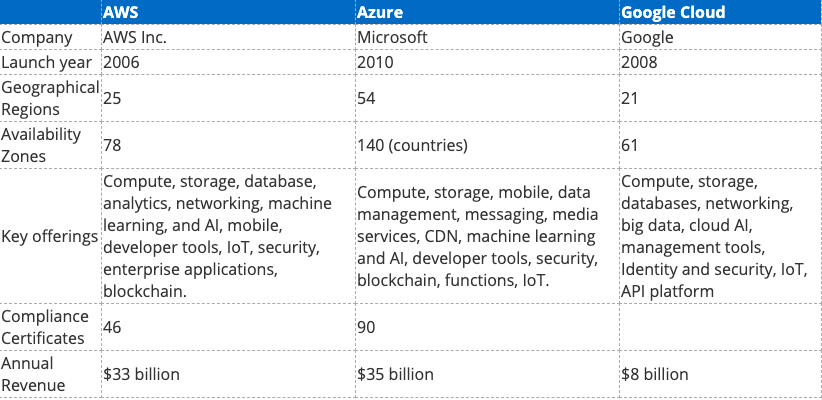


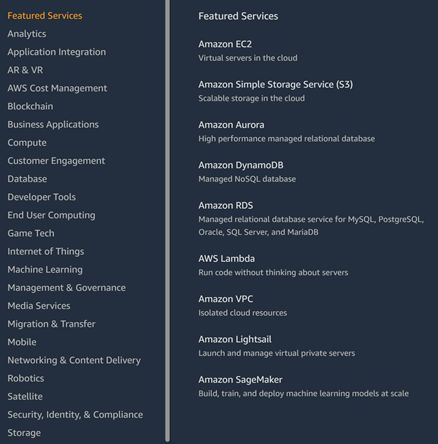

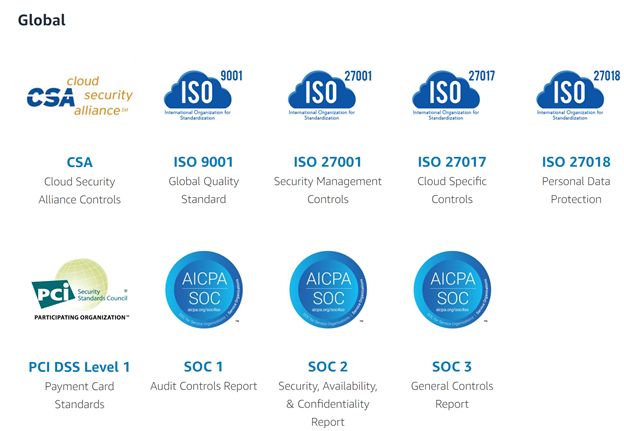



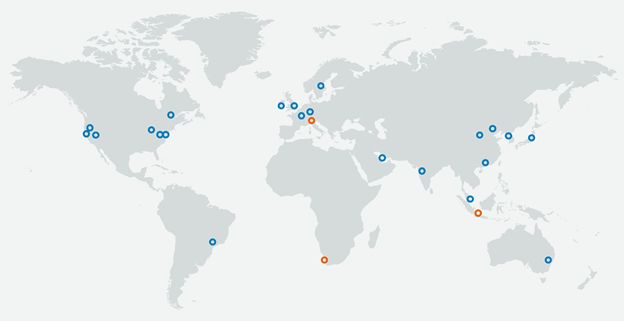

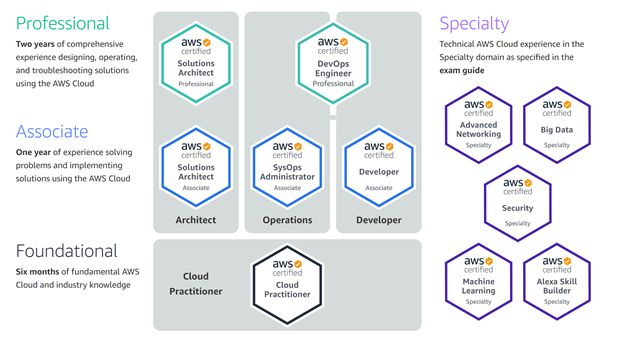


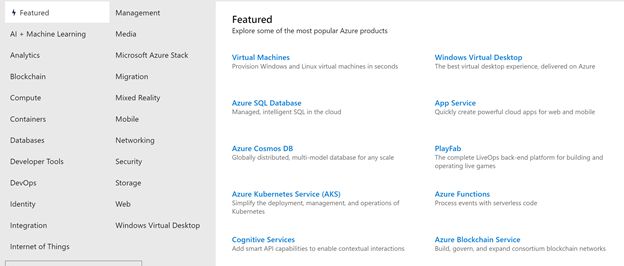

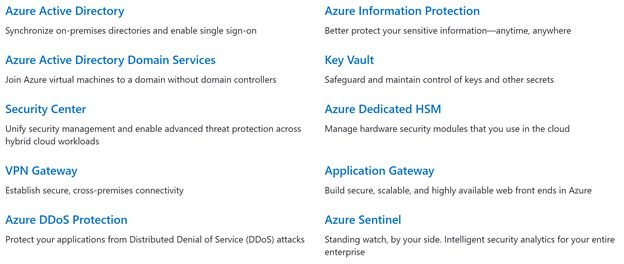

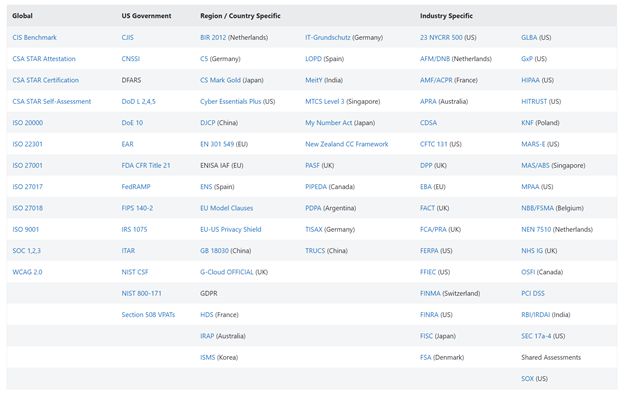



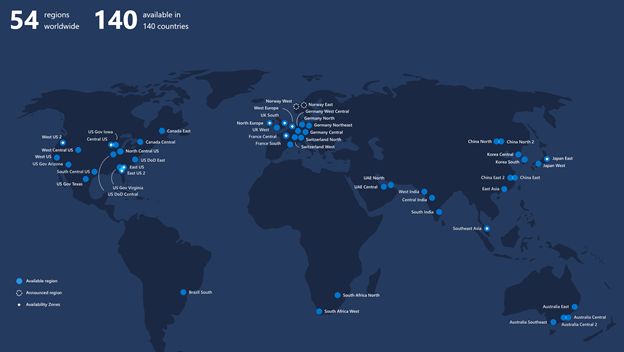



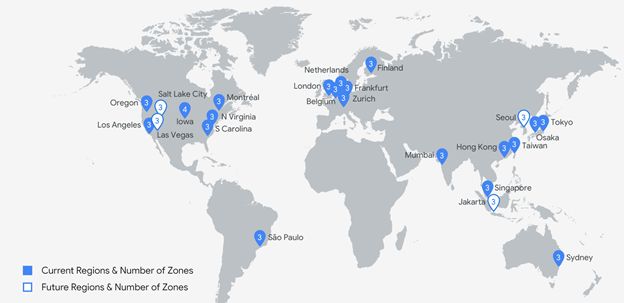


Comments